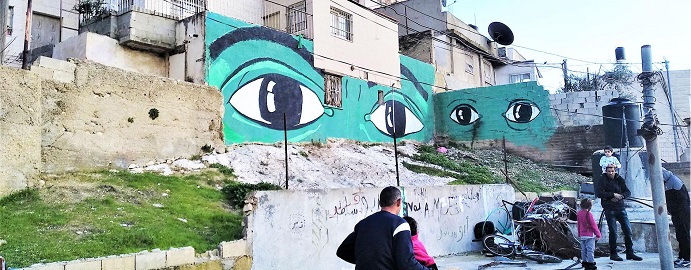Middle East Monitor / March 20, 2020
Israeli human rights organisation B’Tselem has charged police officers with “continu[ing] to abuse Palestinians” in the occupied East Jerusalem neighbourhood Issawiya, despite the COVID-19 emergency.
“Despite the unprecedented health crisis requiring residents of Israel and the Occupied Territories to take extreme social isolation measures, the Israel Police have chosen now, of all times, to escalate their abuse and collective punishment of Palestinians [in Issawiya],” B’Tselem stated.
Israeli occupation forces “invade the crowded neighbourhood daily, even at night, and more so on weekends, for no apparent reason and initiate friction with the residents,” said the NGO.
“In the ensuing confrontations, the police act violently, firing sponge rounds, tear gas canisters and stun grenades”, “close off the entrances to the neighbourhood”, and “arrest residents, mostly minors, and take them to a police station where they are interrogated alone”.
While Israeli authorities have been targeting Issawiya for some time, the human rights organisation noted that such conduct is even more shameful in the current circumstances, “expos[ing] residents to substantial, completely unnecessary health risks”.
“The police conduct is jeopardizing public safety (including the health of the police officers) and violating the medical guidelines on social isolation,” stated B’Tselem.
According to the NGO, Israeli authorities’ disregard for the neighbourhood’s residents, “is nothing new”, but that “continuing and even escalating such conduct during a pandemic is an especially appalling manifestation of this policy”.
Israeli NGO Ir Amim this week also raised the alarm about events in Issawiya, describing the situation has having “deteriorated once again with the intensification of violent police raids and measures”.
“Due to the unique circumstances concerning the Coronavirus, the stark increase in police presence and operations in close quarters has induced extreme anxiety and apprehension among the neighbourhood’s residents,” Ir Amim noted.













